Keywords: Elections
There are more than 200 results, only the first 200 are displayed here.
-

INTERNATIONAL
- Fatima Measham
- 05 February 2016
9 Comments
The Bernie Sanders phenomenon in the US, like Corbyn in the UK and Podemos in Spain, demonstrates the rhetorical potency of renewal; of politics not as usual. It is the sort of thing that resonates with disaffected young people. While it is not entirely sensible to extrapolate developments in the US to Australia, it is worth speculating on the impact of our own changing demographics. Are the major parties equipped to take advantage of these shifts? Are they appealing to a new Australia that is already here?
READ MORE 
-
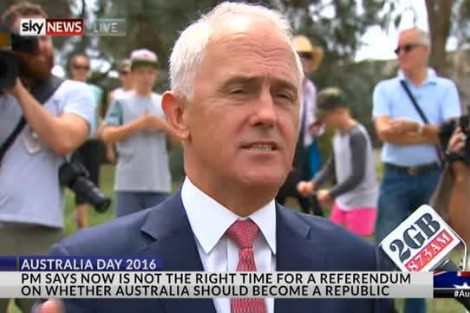
AUSTRALIA
- John Warhurst
- 02 February 2016
22 Comments
It is understandable that Turnbull sees no benefit in a second heroic failure caused by moving too soon. But political leaders who wait for overwhelming popular support are self-serving, because top-down support is needed for success. While January brought unprecedented approval from political leaders and the support of the Australian of the Year, the Australian Republican Movement must continue to be energetic and ambitious, and meet Turnbull's challenge to become still larger and more popular.
READ MORE 
-
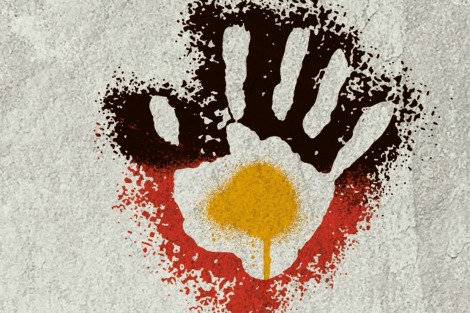
AUSTRALIA
- Frank Brennan
- 15 January 2016
9 Comments
It is now more than three years (and three prime ministers) since the expert panel set up by the Gillard government reported on how the Constitution might be amended to provide recognition of Aboriginal and Torres Strait Islander peoples. When I read the report, my heart sank. It had put forward a comprehensive, but unachievable and unworkable proposal for change. The lesson from 1967 is that a modest change carried overwhelmingly by the Australian people provides the impetus for change.
READ MORE 
-
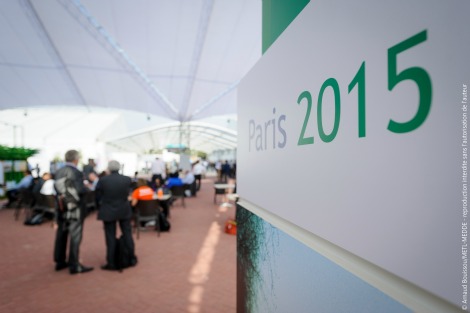
INTERNATIONAL
- Bronwyn Lay
- 10 December 2015
3 Comments
Located in Paris in the aftermath of the attacks, COP21 spookily mirrors how climate change politics occurs within complex and pre-existing power structures that determine its effectiveness. Social and environmental wars merge with increasing intensity: from Syria to the Arctic, from Indonesia to Paris. Climate change complexity matches the complexity of terrorism. Causal chains of social conflict are as complicated as carbon movements that result in environmental distress.
READ MORE 
-

RELIGION
- Frank Brennan
- 04 December 2015
1 Comment
'Tonight, gathered here in the Southern Cross Club in the national capital, gathered as Eureka's children. We affirm that there is room for everyone under the Southern Cross. I hope you will return to Canberra carrying the Southern Cross flag when we proclaim the Australia Republic on 1 January 2020 which will be two elections after Australia last had a monarchist leader of a major political party. Tony Abbott is the last of his type. Whether the prime minister honoured to witness the proclamation is Malcolm Turnbull, Bill Shorten or another matters not.' Annual Dinner for Eureka's Children, Southern Cross Club, Canberra, 3 December 2015.
READ MORE
-

AUSTRALIA
- John Warhurst
- 01 December 2015
9 Comments
Historically, it was Labor that was dogged by splits and ideologues, while the Liberals were perceived as practical. But the ideological chasm between Abbott and Turnbull suggests the Liberals are now a broader church than Labor. The party's ideological and factional conflict will continue unabated as the government contemplates the two big public debates of its next term: a referendum on constitutional recognition of Aborigines and Torres Strait Islanders and a plebiscite on same sex marriage.
READ MORE 
-

AUSTRALIA
- Frank Brennan
- 19 October 2015
7 Comments
It is now more than three years (and three prime ministers) since the expert panel set up by the Gillard government reported on how the Constitution might be amended to provide recognition of Aboriginal and Torres Strait Islander peoples. When I read the report, my heart sank. It had put forward a comprehensive, but unachievable and unworkable proposal for change. The lesson from 1967 is that a modest change carried overwhelmingly by the Australian people provides the impetus for change.
READ MORE 
-

AUSTRALIA
- Frank Brennan
- 16 October 2015
2 Comments
I acknowledge those Aborigines and Torres Strait Islanders who insist that they have never ceded their sovereignty to the rest of us. I join with those Aborigines and Torres Strait Islanders who hope for better days when they are recognised in the Australian Constitution. As an advocate for modest constitutional recognition for Indigenous Australians, I respect those Aborigines and Torres Strait Islanders who question the utility of such recognition. But I do take heart from President Obama's line in his Charleston eulogy for the late Reverend Clementa C. Pinckney: 'Justice grows out of recognition'.
READ MORE
-
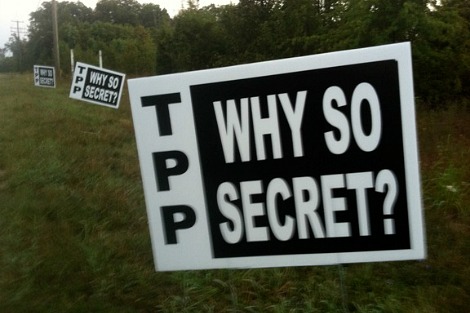
AUSTRALIA
- Binoy Kampmark
- 07 October 2015
3 Comments
According to WikiLeaks, the Trans-Pacific Partnership is the 'icebreaker agreement' for what will be a 'T-treaty triad' which will ultimately apply to 53 states, 1.6 billion people and two-thirds of the global economy. Each of the countries was being sold the implausible idea that the agreement was too large not to sign, that this was the train of history that needed to be occupied, even if seating was in third class. What was on sale, however, was a dogma of corporate benefit rather than public welfare.
READ MORE 
-
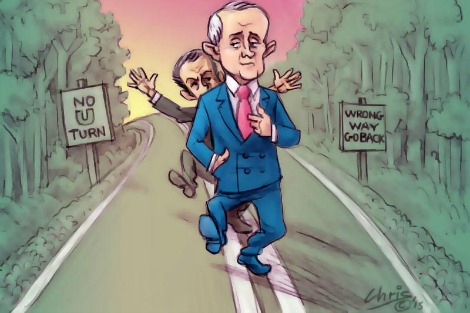
AUSTRALIA
- John Warhurst
- 05 October 2015
8 Comments
The polls are still evenly balanced and Turnbull has yet to strut his stuff in any meaningful way. So Shorten should still be the subject of the sort of scrutiny that David Marr has just given him. Marr is appalled by Shorten's path to power through the union movement, the Labor Party and the factions for what it reveals about the modus operandi of these organisations. But he is still somewhat taken with Shorten's talents. Nevertheless, he doubts that Shorten is up to the job.
READ MORE 
-
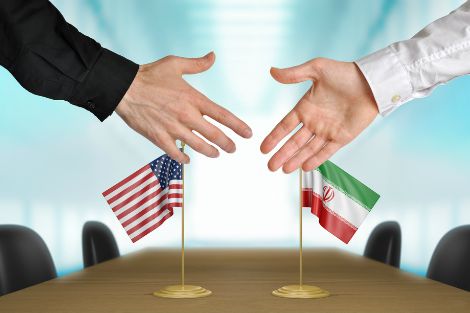
INTERNATIONAL
- William Gourlay
- 22 September 2015
4 Comments
Canny politicians know it is impossible to please everyone all of the time. This must be clear to Obama in the wake of the nuclear deal reached with Iran. As he heralded the accord as a harbinger of a 'more hopeful world', Israeli Prime Minister Benjamin Netanyahu called it a 'stunning historical mistake'. The deal is a result of 18 months of hard diplomatic negotiation, but for the naysayers it means Iran is off the leash.
READ MORE 
-

- Frank Brennan
- 18 September 2015
Pope Francis's concerns are not narrowly dogmatic or pedagogical but universally pastoral. He knows that millions of people, including erstwhile Catholics, are now suspicious of or not helped by notions of tradition, authority, ritual and community when it comes to their own spiritual growth which is now more individual and eclectic. He wants to step beyond the Church's perceived lack of authenticity and its moral focus on individual matters, more often than not, sexual. He thinks the world is in a mess particularly with the state of the planet — climate change, loss of biodiversity and water shortages, but also with the oppression of the poor whose life basics are not assured by the operation of the free market, and with the clutter and violence of lives which are cheated the opportunity for interior peace. He is going to great pains to demystify his office. He wants all people of good will to emulate him and to be both joyful and troubled as they wrestle with the probl
READ MORE